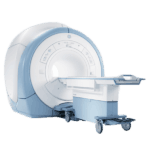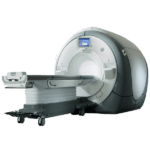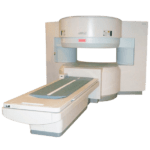A new study suggests that going into a medical procedure (MRI and CT especially) with a negative attitude may not be the best idea

A new study suggests that going into a medical procedure (MRI and CT especially) with a negative attitude may not be the best idea. The study, conducted in Boston and lead by researcher and interventional radiologist Dr. Elvira Lang, included 120 women and 110 men with an average age of 55 years. The participants underwent image guided interventional radiology procedures in which a catheter was inserted through a blood vessel and threaded to an area in the body such as a blocked artery, for treatment. Prior to entering the MRI or CT, the patients were asked to complete a questionnaire regarding their current mood and whether it was negative or positive. 22 percent of those that reported a high level of stress, fear, or hostility, experienced significantly more negative side effects such as blood pressure and heart rate changes, post-operative bleeding, or other adverse events during or immediately after the procedure which could then affect the outcomes of the MRI or CT exam. 12 percent of people in a less negative or neutral mood experienced poor outcomes, and a positive mood had little impact whatsoever, the researchers reported.
The results were presented at the Radiological Society of North America (RSNA 2015) meeting in Chicago. Study author Dr. Nadja Kadom, who is the acting associate professor of radiology at Emory Universiy School of Medicing and Choldren’s Healthcare of Atlanta, confessed in a news release “I was surprised by this result. Prior to this study, I did not believe patient mood could have an effect on outcome.”
Get Started
Request Pricing Today!
We’re here to help! Simply fill out the form to tell us a bit about your project. We’ll contact you to set up a conversation so we can discuss how we can best meet your needs. Thank you for considering us!
Great support & services
Save time and energy
Peace of mind
Risk reduction
You don’t need to be a hundred percent positive when going into a radiology procedure such as MRI or CT, but overcoming negative emotions and getting onto a neutral level will certainly help. Dr. Lang, interventional radiologist in Boston, continued, “This is a real issue. The procedure room is a two-way street in which the patient can affect the healthcare professional and vice versa. Any time the team must manage an adverse event, it takes attention away from the procedure. We need to help staff show patients how to manage their own emotions to help create an environment for a better outcome.”
Researchers suggest training healthcare teams in resilience and techniques to improve their own positive emotional states, and that of the patients, prior to the procedure; in order for the safety and well being for everyone involved.



